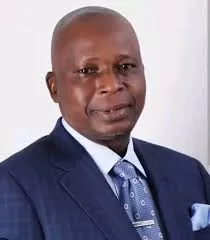
DEFECTION: WHY EXECUTIVE OFFICE-HOLDER CANNOT LOSE SEAT
While interpreting Section 221 of the 1999 Constitution relating to prohibition of political activities by certain associations, the apex Court rightly held in Amaechi v. INEC (2008) 5 NWLR (Part 1080) 227, 317-318 that:
“The above provision effectually removes the possibility of independent candidacy in our elections; and places emphasis and responsibility in elections on political parties. Without a political party a candidate cannot contest. The primary method of contest for elective offices is therefore between the parties. If, as provided in section 221 above, it is only a party that canvasses for votes. A good or bad candidate may enhance or diminish the prospect of his party in winning, but at the end of the day, it is the party that wins or loses an election. I think that the failure of the respondents’ counsel to appreciate the overriding importance of the political party rather than the candidate has made them lose sight of the fact that whereas candidates may change in an election but the party do not. In mundane or colloquial terms, we may say that a candidate has won an election in a particular constituency but in reality and in consonance with section 221 of the Constitution it is his party that has won the election.”
This judicial standpoint of the Supreme Court was followed in the later decision of Faleke v. INEC (2016) 18 NWLR (Part 1543) 61, thereby re-affirming that without a political party, a candidate cannot contest in an election; and where a candidate has won an election in a particular constituency, in consonance with Section 221 of the Constitution, it is his party that won the election.
However, a calm perusal of the foregoing decisions pointedly shows that the apex Court were not interpreting any of the provisions of Sections 131, 137, 177 and 182 of the 1999 Constitution or considering the issues of disqualification of an elected executive office holder for the purposes of his removal from office or whether an elected executive office holder can lose or vacate his office by leaving the party that sponsored him at the election. The inapplicability of judicial authorities to mutually distinct and unrelated instances have been noted by the Court and in Adegoke Motors Limited v. Adesanya & Anor (1989) 5 SC 113 at 166 the Supreme Court per Oputa, JSC held that:
“….It also appeared in rather bold relief that there is now a tendency among our lawyers, to consider pronouncements ….in unnecessary isolation from the facts and surrounding circumstances of those particular cases in which those pronouncements were made. I think it ought to be obvious by now, that it is the facts and circumstances of any given case that frame the issue for decision in that particular case. Pronouncements or our Justices whether they are ratio decidendi or obiter dicta must therefore be inextricably and intimately related to the facts of the given case. Citing those pronouncements without relating them to the facts that induced them will be citing them out of their proper context, for without known facts, it is impossible to know the law on those facts…”
Similar judicial attitude was expressed in the case of Oyeneyin v. Akinkugbe (2010) 4 NWLR (Part 1177) 265, 286 E-F, where the apex Court per Adekeye, JSC held that:
“Cases are not to be cited at large. The facts of the case must be similar, whereas generally speaking cases are decided on their peculiar circumstances or facts. Citing cases that are inapplicable to the peculiar findings in a particular matter lead to grave misconception and ultimately miscarriage of justice. Embarking upon the exercise of comparing and distinguishing an irrelevant case amounts to an unproductive academic exercise – which courts must shun in the furtherance of development of law.”
In any event, in the above mentioned cases of Amaechi and Faleke, the apex Court were not invited to determine the issue of whether an elected executive office holder, who leaves the political party that sponsored him at the election under which he assumed the executive office, will vacate his executive office upon leaving the said party or decampment. On account of this, the cases of Amaechi and Faleke are therefore not good authorities for such supposition.
Considered in a different prism, Sections 131, 137, 177 and 182 of the 1999 Constitution clearly set out the pre-election factors pursuant to which a person seeking to be elected into an executive position can be qualified or disqualified from contesting. In effect, Sections 131, 137, 177 and 182 of the 1999 Constitution are utterly inapplicable after the conduct of the election as they do not have or envisage post-election application.
 Premium News
Premium News